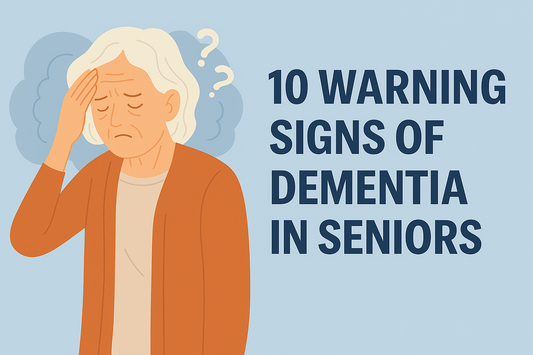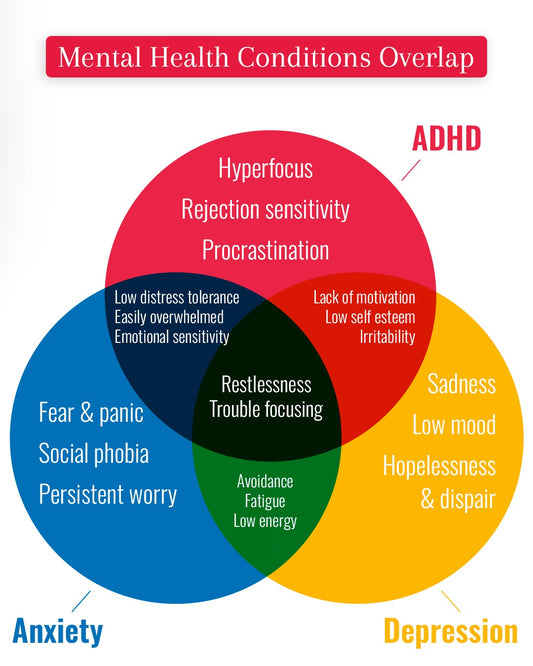
COVID-19: Keeping Your Loved One Safe in a Nursing Home
Countries around the world as we know it are under various states of quarantine and lockdown due to the coronavirus pandemic. News of it spreading around the world has even induced a state of panic among the people in many countries. However, with the increasing number of people being infected, many people around the world still don’t all the necessary information about COVID-19 or how to manage it.
QUICK LINKS - TOPICS COVERED:
- ALL ABOUT THE CORONAVIRUS
- KEEPING SAFE FROM COVID-19
- MAINTAINING A SAFE NURSING HOME
- WHAT TO DO IF YOUR LOVED ONE IS SICK?
ALL ABOUT THE CORONAVIRUS
What are coronaviruses?
Coronaviruses are a group of related viruses generally originating from mammals and birds. There are many different kinds of coronaviruses and some can cause serious illnesses. In humans, coronaviruses mainly cause respiratory tract infections, which can range from mild to lethal. Severe acute respiratory syndrome (SARS) and Middle East respiratory syndrome (MERS), were two such diseases caused by specific strains of the coronavirus.
What is COVID-19?

The current 2019/2020 coronavirus outbreak, also known as COVID-19, is a novel infectious disease caused by a specific strain of the coronavirus (SARS-CoV-2). The first outbreak was identified in Wuhan, Hubei province, China in December 2019. On March 11, 2020, the World Health Organization (WHO) declared it as a pandemic.
How does COVID-19 spread?
The COVID-19 virus is primarily spread through respiratory droplets. People generally must be within six feet of someone who is contagious or come into contact with the droplets when an infected person coughs or sneezes. It may also be possible to be infected when a person comes into contact with a surface or object that has the virus on it and then touch their own mouth, nose, or eyes.
What are the symptoms?
The symptoms of COVID-10 generally appear in as little as two days or as long as 14 days after exposure. They include:
- Cough
- Fever
- Shortness of breath
It is predicted that the virus will cause mild respiratory infections in about 80% of those infected, with half developing pneumonia. Another 15% is expected to develop severe illness, and 5% will need critical care. 1
Who are at risk?
While anyone who’s been in close contact with someone who’s contracted the COVID-19 virus is at risk of contracting it themselves, there are a number of people who are at a higher risk of developing more serious complications. They include individuals who2:
- Have a heart condition
- Are taking medication that weakens the immune system (immunocompromised)
- Have severe lung conditions
- Are pregnant
- Have had an organ transplant
- Are undergoing certain types of cancer treatments
- Have blood or bone marrow cancer
KEEPING SAFE FROM COVID-19
Wash Your Hands Often

Although it may seem insignificant, washing your hands properly and often can help a lot. Using soap and water, wash your hands for at least 20 seconds. It is especially important to wash your hands after:
- Blowing your nose
- Coughing or sneezing
- Going to the bathroom
- Before and after eating
- Before and after preparing food
The proper steps to hand washing are as follows:3
- WET your hands with clean, running water (warm or cold), turn off the tap, and apply soap.
- LATHER your hands by rubbing them together with the soap. Lather the back of your hands, between your fingers, and under your nails.
- SCRUB your hands for at least 20 seconds. (Sing ‘Happy Birthday’ to time it right)
- RINSE your hands well under clean, running water.
- DRY your hands using a clean towel or air dry them.
Should you be in a situation where you’re not within reach of soap and water, use hand sanitizer that contains at least 60% alcohol. Sanitizers can quickly reduce the number of germs on hand in many situations. However, it is important to remember that hand sanitizers do not get rid of all types of germs. Therefore, it is important wash your hands once you do have access to soap and water.
The proper steps to using hand sanitizer are as follows:
- Apply the gel product to the palm of one hand (read the label to learn the correct amount).
- Rub your hands together.
- Rub the gel over all the surfaces of your hands and fingers until your hands are dry. This should take around 20 seconds.
Self-Quarantine4
If you or your loved one have come into contact with someone who’s tested positive for COVID-19 or have symptoms that could be suspect, it is imperative to self-quarantine. In the current situation, quarantining means staying home and away from other people for at least 14-days. It also includes not going out shopping, eating, or socializing. For those who don’t live alone, they should do their best to retreat to their room or find a separate area in their home.
Social Distancing
Even if you’ve not come into contact with anyone who has COVID-19 or is just unwell, it can help to practice social distancing. The goal of social distancing is to reduce the probability of contact between people carrying the infection and others who aren’t infected so as to minimize transmission.
When socially distancing yourself, you’ll have to avoid physical interactions with other people. This means avoiding going out of your house for non-essential activities. If you do have to go out, for work or other reasons, try to keep physical interactions with others at a minimum and avoid going to places which are likely to be crowded or packed with people.
Other Things You Can Do
In addition to the above practices, some other things you can do to keep yourself and others around you healthy include:
- Avoiding touching your eyes, nose, and mouth with unwashed hands.
- Staying at home when you are sick, even if it is mild.
- Cover your cough or sneeze with a tissue, then throw the tissue in the trash, which should then be disposed responsibly.
Wear a face mask when going out to prevent moisture droplets from coughs or sneezes from infecting others
MAINTAINING A SAFE NURSING HOME
Clean and Disinfect
Since nursing homes are places with a high concentration of people, especially with staff and visitors frequenting, keeping the place sanitized is extremely important. Check with your loved one’s nursing home what their current procedure is to maintain a sanitized facility. Surfaces in all living areas and frequently used items should be cleaned and disinfected at frequent intervals.
Reduce Group Activities

The number of group activities conducted in the nursing home must be reduced to avoid large gatherings of people in an enclosed space. However, it is also unreasonable to expect a complete shut down of activities as many residents, including your loved one, will need some level of interaction with others and things to keep themselves active. In such cases, it is recommended that enough space is maintained between each person.
Responsible Staff Interactions
Given the situation of a nursing home, there will be a number of interactions between staff and their residents. As such staff members should be responsible when having a physical interaction with residents. For example, they can:
- Wash or sanitize their hands after interacting with each resident
- Practice social distancing outside of the nursing home
- Stay at home if they are sick. Coming into contact with older people can put your loved one at risk of infection, thereby affecting their immune system.
- If staff do have to come to work while having mild illnesses, such as a sore throat, they should wear face masks at all times.
Managing Sick Residents
If your loved one or another resident at the nursing home is unwell, it is for the best of everyone that they are kept isolated with only essential staff interaction. It will be necessary to either practice social distancing or self-quarantine, depending on the severity of the situation.
WHAT TO DO IF YOUR LOVED ONE IS SICK?
The first thing to do if your loved one is sick is to keep them away from others. If they are in a nursing home, talk to the staff to arrange for them to be socially distanced as much as possible. This includes yourself. By not keeping yourself away from your loved at a time when their immune system is weak, you may be putting them at risk by bringing in contagions from outside of the nursing home. You can still interact with them virtually through voice and video calls during this time.
Next, explain to your loved one the proper way to wash their hands and also to cover their coughs and sneezes. If your loved one is able, then it may be best for them to use a face mask while interacting with others or venturing out of their room. Should they refuse to wear a face mask for any reason, those interacting with your loved one would have to be extra diligent in practicing hygiene and sanitization methods.
Avoid Sharing Personal Items
During this time when your loved one is unwell, avoid sharing personal items. Especially if they are in a nursing home, speak to the staff to arrange for either disposable items or items that can be used exclusively by your loved one while they are unwell.
Monitor Symptoms & Alert Doctor
If you find that your loved one’s illness is not improving or is showing symptoms of being positive for COVID-19, call their primary health care provider. Don’t rush them into the doctor’s office, urgent care facility, or emergency room. Speak to the doctor and explain your loved one’s symptoms over the phone first. Be sure to tell them if you suspect that your loved one has been in close contact with someone who has tested positive for COVID-19 or have travelled to one of the affected countries within the previous 14 days. Remember to include yourself in the count.
Once you’ve consulted with the healthcare provider over the phone, they will be able to recommend the best course of action and explain how to go about it.
For more information and updates on COVID-19, please visit: https://www.cdc.gov/coronavirus/2019-nCoV/index.html



